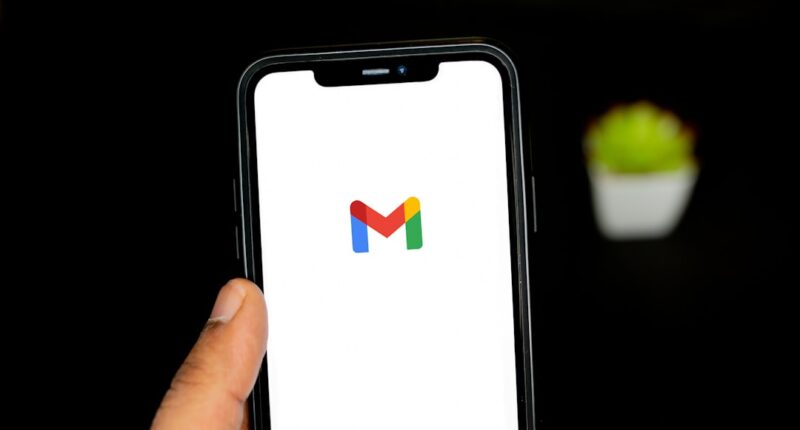It can be difficult and intimidating to get record labels to listen to your music. It’s critical to comprehend the subtleties and tactics that can make you stand out from the competition in a highly competitive industry. We’ll look at a number of methods and strategies in this post to help you make more of an impression on record labels. We will explore the complexity and brittleness of the music business, offering you insightful analysis and practical advice. It is imperative to have a firm grasp of the current situation within the music industry before attempting to become noticed by record labels.
Key Takeaways
- Understanding the music industry is crucial for success as an artist
- Researching record labels is important to find the right fit for your music
- Creating a music professionals directory can help you keep track of industry contacts
- Preparing your music for submission involves ensuring it is high quality and properly mixed/mastered
- Crafting a compelling pitch is key to catching the attention of record labels
Due to the growth of streaming services and digital platforms, the industry has experienced substantial changes recently. This has presented problems for established record labels as well as new opportunities for independent musicians. Labels that release records are essential to the music business. They serve as go-betweens for artists & the market, offering tools, know-how, and connections to enable artists to connect with more people.
There is a growing number of independent record labels that support emerging artists and niche genres, even though major record labels continue to rule the industry. Finding record labels that might be a good fit for your music is the first step in getting them to notice it. You can more successfully focus your efforts if you investigate and comprehend various record labels. Record labels can be classified into three categories: major, independent, & specialty. Major labels often have extensive distribution networks and substantial resources, & they are linked to well-known artists.
But independent labels tend to be smaller, more focused on the artist, and frequently cater to niche markets or subcultures. Specialty labels cater to niche markets and may have a more specialized approach to marketing & promotion. Once you have identified record labels that align with your music style & goals, it’s important to research them further. This involves studying their roster of artists, their past releases, and their overall brand and image.
| Step | Description | Metric |
|---|---|---|
| 1 | Research record labels | Number of record labels researched |
| 2 | Prepare demo package | Number of songs included in demo package |
| 3 | Find contact information | Number of contact emails/phone numbers found |
| 4 | Send demo package | Number of record labels contacted |
| 5 | Follow up | Number of follow-up emails/calls made |
| 6 | Track progress | Number of responses received |
Understanding a record label’s preferences and aesthetic can help you tailor your approach and increase your chances of getting noticed. Researching record labels can be done through various channels. Start by exploring their websites and social media profiles to gather information about their artists and recent releases.
Look for interviews or articles featuring the label’s executives or artists to gain insights into their vision and values. Also, attending industry events & networking with professionals can provide valuable firsthand information. To streamline your efforts & keep track of the record labels you are targeting, it’s helpful to create a comprehensive directory of music professionals. This directory should include not only record labels but also AandR representatives, managers, & other industry contacts.
Having a centralized resource will save you time & ensure that you are reaching out to the right people. There are various ways to create a music professionals directory. You can use spreadsheet software to organize the information or utilize specialized software and online platforms designed for this purpose. Include relevant details such as contact information, submission guidelines, and any specific requirements or preferences mentioned by the record labels. Before submitting your music to record labels, it’s crucial to ensure that you have high-quality recordings & professional packaging.
Record labels receive countless submissions, so it’s important to make a strong first impression. Invest in professional recording & production to showcase your talent & potential. In addition to the quality of your music, pay attention to the packaging and presentation. Create compelling album artwork and design a visually appealing press kit or EPK (Electronic Press Kit) that includes your bio, photos, and any press coverage or accolades you have received.
Remember, your submission should reflect your professionalism & dedication to your craft. Crafting a compelling pitch is essential to grab the attention of record labels. Keep in mind that record label executives receive numerous submissions daily, so it’s important to stand out from the crowd. Your pitch should be concise, clear, and engaging, highlighting your unique selling points & what sets you apart from other artists.
Start your pitch with a strong and attention-grabbing introduction. Clearly state your genre and influences, and provide a brief overview of your music career and achievements. Highlight any notable performances, collaborations, or awards you have received. Be sure to mention why you believe your music would be a good fit for the record label you are targeting. Once you have prepared your music & crafted a compelling pitch, it’s time to submit your music to record labels. The method of submission may vary depending on the preferences of the record label.
Some labels prefer digital submissions via email or online platforms, while others may still accept physical submissions through mail. When submitting your music, follow the record label’s guidelines & instructions carefully. Pay attention to any specific requirements regarding file formats, demo length, or additional materials. Personalize your submission by addressing the recipient by name & mentioning any connections or referrals you may have. Following up with record labels after submitting your music is an important step that many artists overlook.
While it’s essential to give the label some time to review your submission, a well-timed follow-up can demonstrate your professionalism & commitment. However, it’s crucial to follow up in a respectful & non-intrusive manner. Wait for a reasonable amount of time before sending a follow-up email or making a phone call. In your follow-up, express your gratitude for the opportunity to submit your music and inquire about the status of your submission.
Keep your message concise & polite, and avoid being pushy or demanding. Remember, patience and persistence are key in the music industry. In addition to submitting your music to record labels, it’s important to actively promote and market your music. Record labels are more likely to take notice of artists who have already built a following & demonstrated their ability to connect with an audience. Utilize various strategies to increase your visibility and reach, including social media, live shows, & collaborations. Social media platforms such as Instagram, Facebook, and YouTube can be powerful tools for promoting your music.
Create engaging content, interact with your followers, and collaborate with other artists or influencers in your genre. Also, performing live shows and networking with industry professionals can help you gain exposure & build valuable connections. ConclusionGetting your music noticed by record labels requires a combination of talent, strategy, and perseverance.
By understanding the current state of the music industry, identifying the right record labels, and conducting thorough research, you can increase your chances of catching the attention of industry professionals. Remember to prepare your music and pitch meticulously, and don’t forget the importance of promotion and marketing. With dedication & a well-executed plan, you can take the first steps towards achieving your music career goals. So, take action today and start submitting your music to record labels.
If you’re an aspiring musician looking to send your music to record labels, you might find this article on Music Marketing Blog helpful. The blog provides valuable insights and tips on how to effectively promote your music and increase your chances of getting noticed by record labels. Check out their article on “How to Send Music to Record Labels” for a step-by-step guide on the best practices and strategies. Click here to read the article and take your music career to the next level.
FAQs
What is a record label?
A record label is a company that manages the production, distribution, and marketing of music recordings.
Why would I want to send my music to a record label?
Sending your music to a record label can help you gain exposure, access to resources, and potentially lead to a record deal.
How do I find record labels to send my music to?
You can research record labels online, attend music industry events, or ask for recommendations from industry professionals.
What should I include in my music submission to a record label?
Your music submission should include a demo of your music, a brief bio, and any relevant information about your music career.
What format should I send my music in?
Most record labels prefer digital submissions in the form of MP3s or links to streaming platforms.
How do I follow up after sending my music to a record label?
You can follow up with a polite email or phone call after a few weeks to inquire about the status of your submission.
What should I do if a record label rejects my music?
Don’t be discouraged! Keep working on your music and continue to submit to other record labels or explore other avenues for exposure and success in the music industry.









